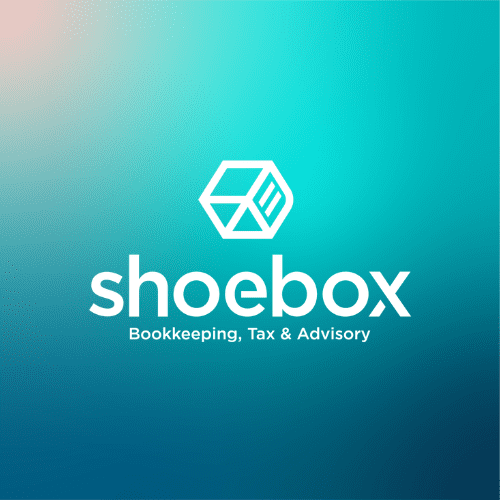How Long Should You Keep Your Business Records for in Australia?

Running your own business or being self-employed can mean dealing with a lot of paperwork. Setting yourself up with and learning how to use a record management system that suits your lifestyle can make things much more manageable. In this month’s blog post, you’ll learn about record keeping – what documents you need to keep, tools for keeping records and how long you need to keep them for in Australia.
Having a records management system in place has many advantages. It is helpful for:
- making more informed decisions by tracking your business’ health
- meeting your tax and superannuation obligations,
- managing your cash flow and demonstrating your financial position to banks, investors or other lenders.
These records and sometimes how long you keep them for depends on your business’ tax, super obligations and structure (sole trader, partnership, company or trust).
Why You Need To Keep Accurate And Complete Records
As a business owner or self-employed individual, you’re legally required to keep records concerning taxation and superannuation in all phases of your business. In general, these records are:
- any documents related to your business income and expenses,
- any documents of your business’ tax and super affairs containing a description of the choices, estimates, determinations, and calculations, including how (basis or method) they were made.
The Australian Taxation Office conducts regular audits of businesses to ensure and enforce the tax, super and pay laws. These audits can be completely random and could cop you some significant penalties for not keeping or retaining records correctly – regardless of if it was a mistake or something you hadn’t got around to yet. The ATO can sometimes take your circumstances, compliance history and behaviour into consideration when making a penalty decision; if you remember to ask. That’s why it’s often recommended to save yourself a world of stress and get in touch with a BAS Agent or Taxation and Bookkeeping agency, like us!
Records and Documents You Should Keep For Tax and Accounting Purposes
The types of records and amount of time you need to spend will always vary depending on your business size, structure and services, so our list is by no means definitive. If you’d like to explore in-depth the varied documentation the ATO has compiled for your business type; we recommend checking out their Index on Record Keeping for Business.
- records of the purchase, sale and other costs of any business assets, such as land, buildings or office equipment
- and contributions to employee super.
- banking records
- business activity statement records including GST, pay as you go, fuel tax credits, luxury car tax and wine equalisation tax
- Income tax return records – including income, deductions, stock and assets, and personal services income
- taxable payments annual report records
- fringe benefits tax return records
- employment, super contributions and payroll records
- contractor and supplier records
- petroleum resource rent tax records
- sharing economy records
- cryptocurrency records
Although this list can seem quite daunting, not all of these will apply to you. It’s essential to be aware of all types since failing to comply with record-keeping requirements could result in nasty legal and financial consequences down the track. If you need some help, our friendly team of experts can help guide you in the right direction with a consultation.
How Long Do You Need To Keep Business Records?
You might’ve thought you only need to keep your business or tax documents for only five years. Although close to the Australian Tax Office’s advice, this is not entirely correct. The official advice from the ATO is to keep records for at least five years. However, we recommend keeping them for seven to be on the safe side.
Why? Well, there are a variety of record types that are required by the ATO to be kept for longer than five years, including:
- Records connected to a tax return or document that’s corrected or amended,
- Document information you plan to use again in a future return,
- Records of depreciating assets,
- Records of capital gains tax assets and
- Petroleum resource rent tax records.
Also, other governing bodies and agencies may require your documents to be kept secure for longer than five years. For example, the Australian Securities & Investments Commission (ASIC) requires companies to retain and keep some records for seven years.

Starting Your Electronic Bookkeeping System
The ATO is actively encouraging businesses big and small to move toward digital recordkeeping and reporting systems, so there’s no better time to make the switch or learn a new digital record management system. There’s a wide range of online reporting tools readily available through the ATO, but once you grow your business, you may start to find it a lot more difficult to self-report and manage these records. That’s where accounting software, cloud-based services and hiring an expert can come in handy.
The most popular record management software and systems are MYOB and Xero. We’ve helped heaps of businesses manage their records using these platforms, and we can see why people love it. We may be bookkeeping pros, but that doesn’t mean you need to be. Using a digital system allows you to easily make secure digital copies of all your receipts, documents and invoices for easy access to report and store, with or without the help of an accountant.
Here at Shoebox, we know it’s not always as simple to get on top of your records and bookkeeping as we made it sound in this post. Managing your own records can sometimes feel like it all hinges on you; bookkeeping with us can give you time to focus on what you really care about, your business, rather than spending hours with data entry. If you’re feeling a bit behind and out of the loop with your records, we can help you find the solution and system that works best for you.
